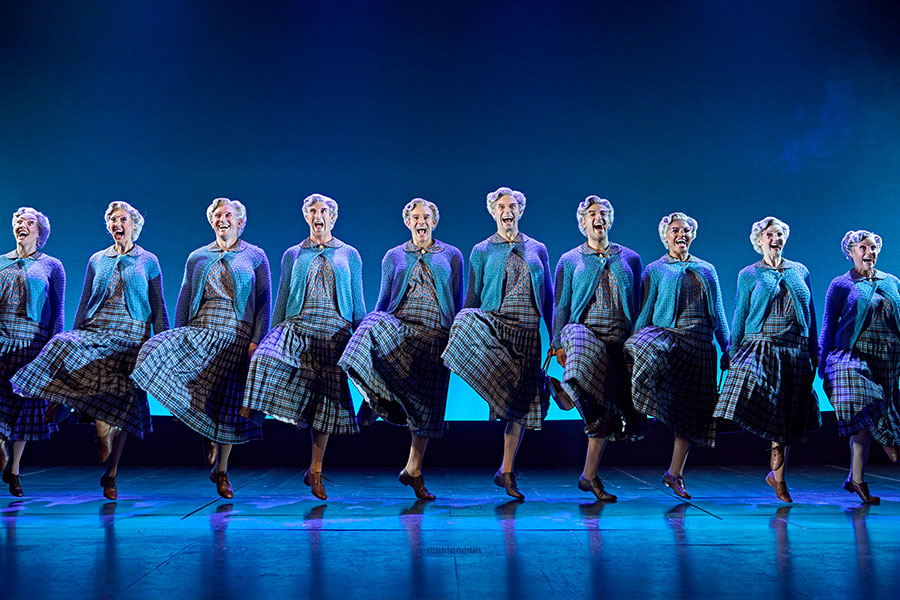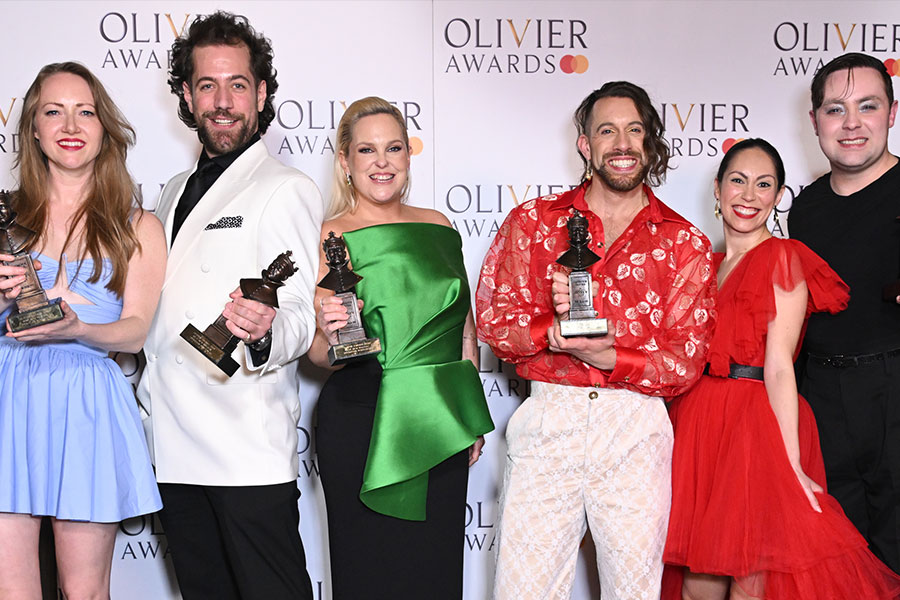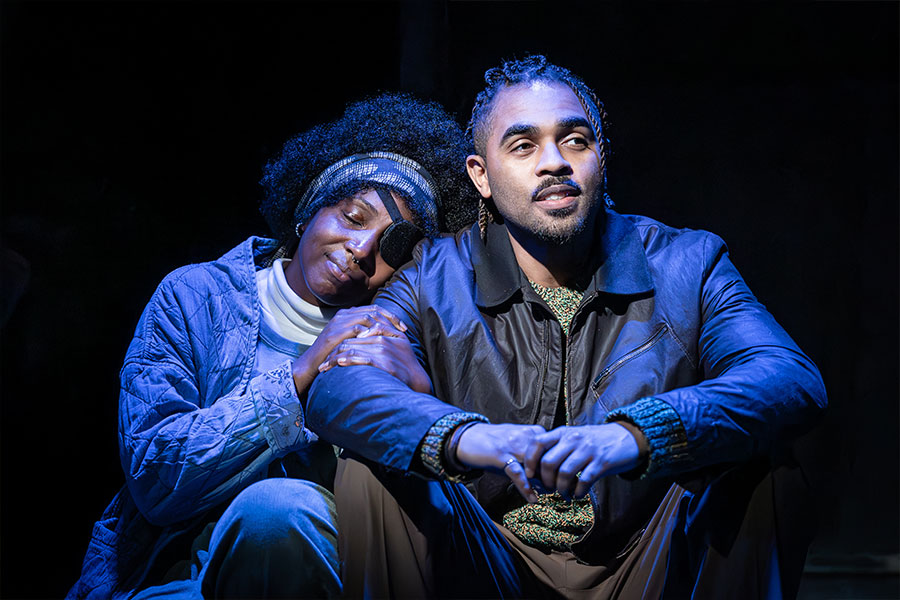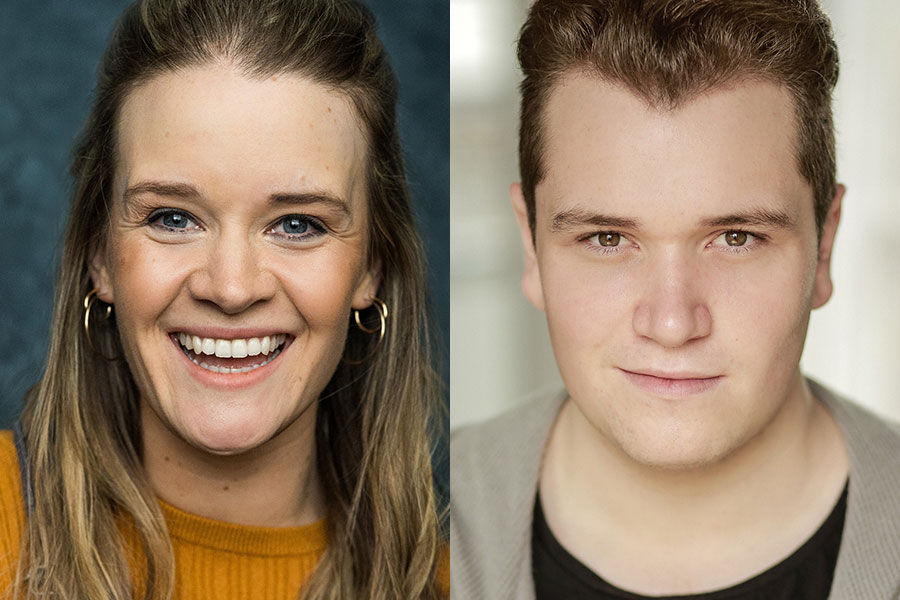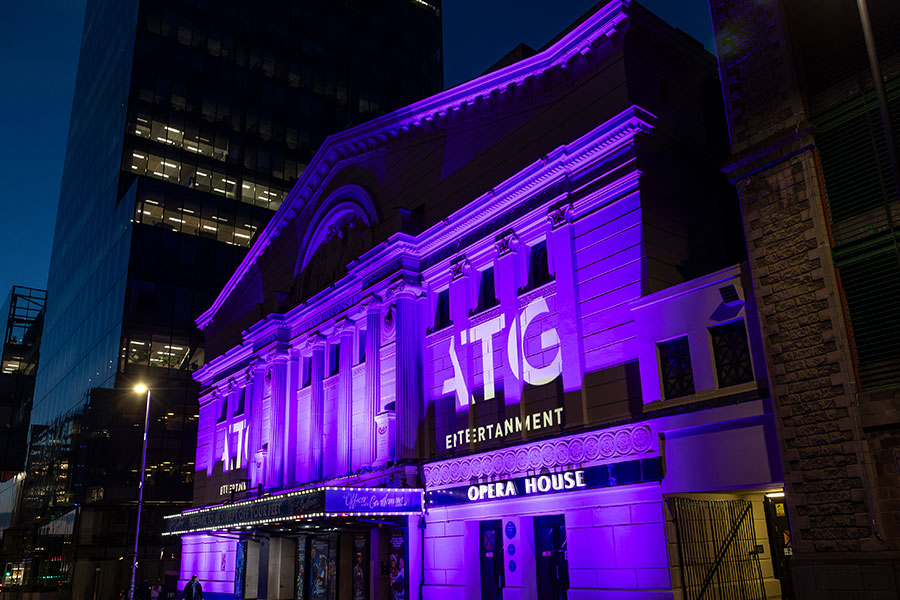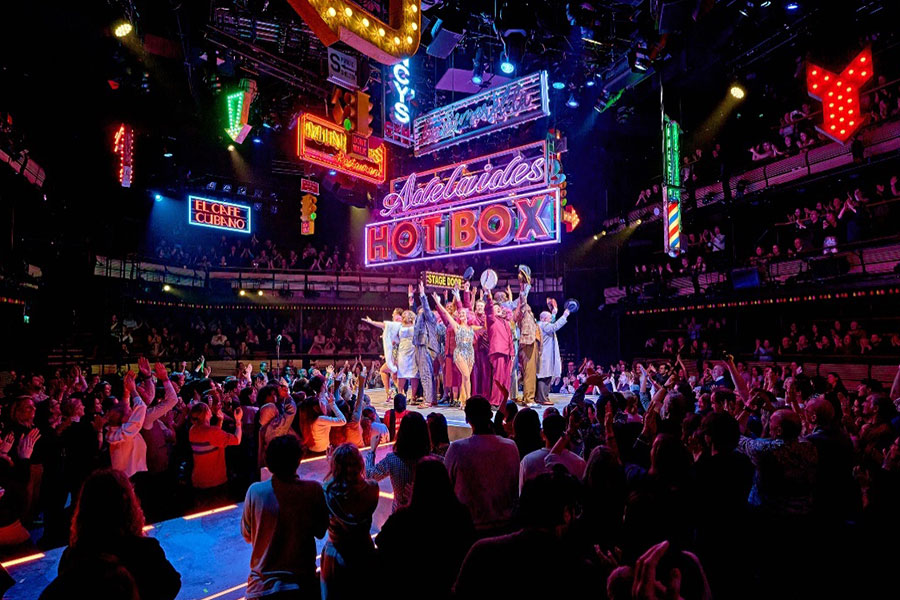Simply Heavenly
As part of the Young Vic’s ‘Walkabout Season’, its highly acclaimed production of Langston Hughes’ musical comedy Simply Heavenly pays a welcome visit to the Trafalgar Studios. Rob Howell’s relaxed bar room design seems as comfortable in its new home as the cast and so integrated that the audience have no qualms in lounging around it in the interval.
Since the transfer, only a few parts have been recast. The leads remain – including Rhashan Stone, Ruby Turner and Clive Rowe, who all positively shine – while the slightly reshuffled ensemble remains a strong unit. Altogether, they exude a sense of community as actors and characters – and boy can they sing!
Hughes sets the piece in 1920s Harlem and the plot, like its lead character is Simple (or Semple, Jesse B Semple): Jesse is in love with Joyce and wants to marry her but all manner of obstacles prevent him – for a start he’s already married. Throughout Jesse’s trials and tribulations, the frequenters of Paddy’s bar support their pal with alcohol and some wonderful songs.
At first glance, the story here may seem too simplistic and secondary to the music. But what Hughes creates (and director Josette Bushell-Mingo remains true to) is a collection of wonderfully complex characters. At the same time, he gives a subtle sense of the political backdrop against which these larger-than-life characters struggle without ever having to address the ‘issues’ full on.
The performances are wonderful all round as is the singing. A three-piece-band on stage and some lively choreography from Paul J Medford galvanises the ensemble’s joyous energy to ignite the audience too. You’ll be tapping your toes and humming for days.
– Hannah Kennedy
Note: This review dates from March 2003 and this production’s original run at the Young Vic Theatre. As a result some of the cast have changed since the writing of this review. For current cast details, please see the Simply Heavenly listing entry.
The central problem of Langston Hughes’ 1957 musical comedy concerns how much attention should be given to the music and how much to Hughes’ determination to depict the life of the ordinary folk of Harlem.
In a time of great change within black America – after the great migration from the south, at the beginning of the integration legislation and just before the emergence of a more radical form of black writing – Hughes was conscious that too many of his contemporaries relied on a host of stereotypes in their works. There’s a sly reference early on in the play to this tendency.
But Hughes draws his characters from the people he knows. “Why ain’t there black folks featured in the newspaper?” cries Jesse B Semple, the Everyman
Hughes created to express the views of the urban poor. Written out of history, written out of the media, these black men and women make a living doing what they can.
Simply Heavenly doesn’t ignore the political background. When Semple tries to predict a future where black army officers would command Mississippi whites, he’s cold-shouldered by his friends, for whom the decades of oppression and prejudice is all too raw. There’s an uncomfortable resonance for today’s audience, too, when he talks of the next war being led by a black general.
Director Josette Bushell-Mingo has to tread a tightrope, ensuring that Hughes’ portrait of Harlem’s poor and dispossessed doesn’t detract from the entertainment. She pulls off the balancing trick perfectly, thanks partly to a wide-open and atmospheric barroom set from Rob Howell, but mainly from the brilliance of this hard-working and talented cast.
Although, the political input raises this above the average musical and Hughes’ dialogue sometimes has an almost Shakespearean air, Simply Heavenly is far from a heavy affair. Indeed, you’ll be hard pressed to find a more enjoyable night at the theatre. While David Martin’s music doesn’t exactly have you whistling melodies all the way home, they fit Hughes’ intelligent lyrics perfectly.
The ensemble, led by the excellent Rhashan Stone’s Semple, throw themselves into their numbers with great abandon and there’s some stupendous singing from Clive Rowe and Ruby Turner – their blues duet in the first act is a real tingle-down-the-back-of-the-neck moment. There’s sterling support, too, from Nicola Hughes’ vampish Zarita and from Dale Superville’s woebegone bluesman, mourning the trend towards recorded music and seeing his way of life disappearing.
But this is ultimately an evening of pure joy which more than lives up to its title. In fact, I’d go so far as to say it’s as good an evening of foot-stomping, toe-tapping, good-time entertainment as you’re liable to find anywhere in London. It certainly shows that a good musical doesn’t need a host of special effects, elaborate sets and casts of hundreds to send people home with a smile on their faces.
– Maxwell Cooter




